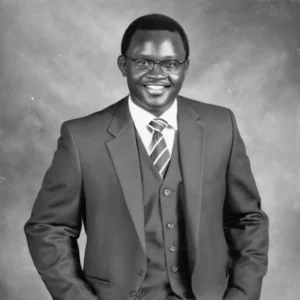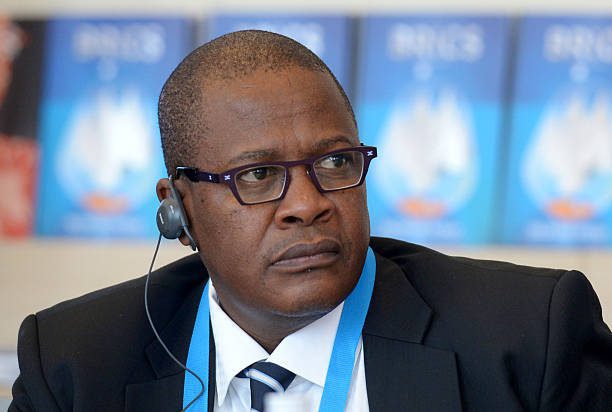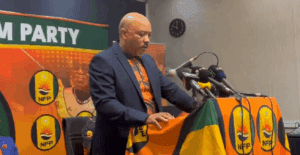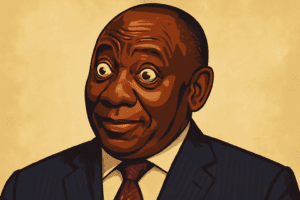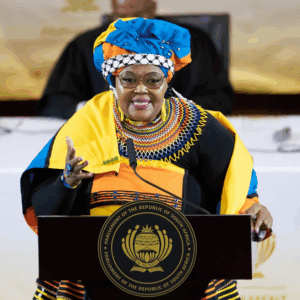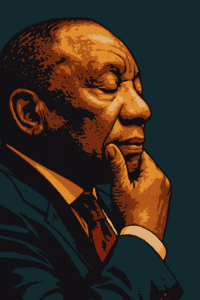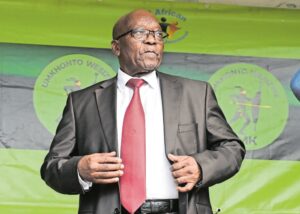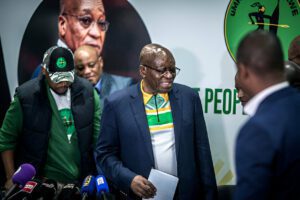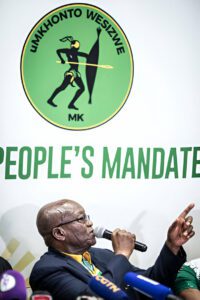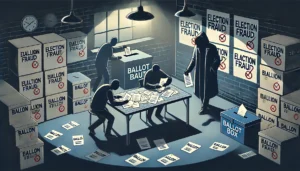Brian Molefe, a member of the Umkhonto weSizwe Party (MK) and former CEO of Eskom, delivered his first address in Parliament, raising critical concerns about Eskom’s request for an R8 billion clawback from a revenue determination that had already been approved by the National Energy Regulator of South Africa (Nersa). The speech was made during a plenary session focused on Eskom and the country’s ongoing electricity crisis.
Molefe questioned the nature of the R8 billion clawback, suggesting that it was not simply a minor miscalculation, but indicative of deeper issues within Nersa’s revenue estimation framework.
“It is not a trivial matter and it cannot qualify to be called an error,” Molefe remarked. “It is a fundamental error in estimation and points to a fundamental flaw in the revenue estimation model of Nersa.”
He further argued that the issue extended beyond mere financial miscalculations, drawing attention to Eskom’s operational structure.
“More importantly, it points to the fundamental flaw in the operating model of Eskom,”
Molefe added, raising concerns about how the utility is managed, particularly in relation to its primary expense: coal.
Coal as Eskom’s Biggest Expense
Molefe emphasized that coal remains Eskom’s largest operational cost, with about 85% of the nation’s energy being generated from coal. However, in terms of financial value, coal constitutes an even larger percentage—around 90%—in Nersa’s revenue determination model. This, he argued, places enormous pressure on Eskom to manage its coal procurement costs effectively.
He suggested that Eskom, as one of the largest consumers of coal, should have more leverage when negotiating prices with suppliers.
“Eskom, as a large consumer of coal with numerous suppliers, can negotiate in its favour the price at which it purchases coal,”
he stated.
However, he lamented that this was not the case, pointing out that Eskom often found itself at the mercy of coal suppliers.
“Eskom should not be a price taker in the coal industry but rather it should be a price maker,”
Molefe stressed. He went on to describe how Eskom officials often failed to resist pressure from wealthy coal mining companies, which frequently resorted to political and other means to ensure higher prices.
“In reality, the opposite is true, as Eskom officials rarely stand up to the bullying by rich mining companies who do not hesitate to use political and other methods of pressure to force exorbitant prices down the throat of Eskom officials,”
Molefe argued.
The Impact on Consumers
The consequence of Eskom’s inability to negotiate better coal prices, according to Molefe, is that South African consumers, particularly the poorest, are bearing the brunt of the high electricity prices. He described the situation as a form of wealth transfer from ordinary citizens to wealthy coal mining companies.
“The resultant high price of electricity is in fact a transfer via Eskom and Nersa of money from the clients of Eskom, especially the poor, to the rich coal mining companies that feed their insatiable appetite for profit,”
Molefe said.
He further criticized Nersa’s approval of the R8 billion clawback, which he argued would exacerbate the financial burden on South Africa’s working class.
“The R8 billion approved by Nersa is, in simple terms, money that Nersa, as a conduit, will be taking from poor working-class South Africans to give to the super-rich coal mining companies to feed their thirst for profit,”
he added.
The Call for Regulatory Reform
Molefe concluded his speech by calling for a change in how the pricing of coal is regulated. He argued that it was not the price of electricity that needed regulation but the price of coal itself.
“It is the price of coal that should be regulated, not the price of electricity,”
he maintained, adding that the government, through its complete ownership of Eskom, already has significant control over the coal mining industry, as it issues licenses to mining companies and subsequently purchases coal from them through Eskom.
This speech not only highlighted Molefe’s concerns about Eskom’s operational inefficiencies but also shed light on broader issues within the coal industry and the economic inequalities exacerbated by the current pricing structure.
